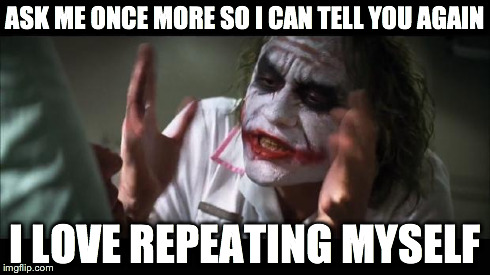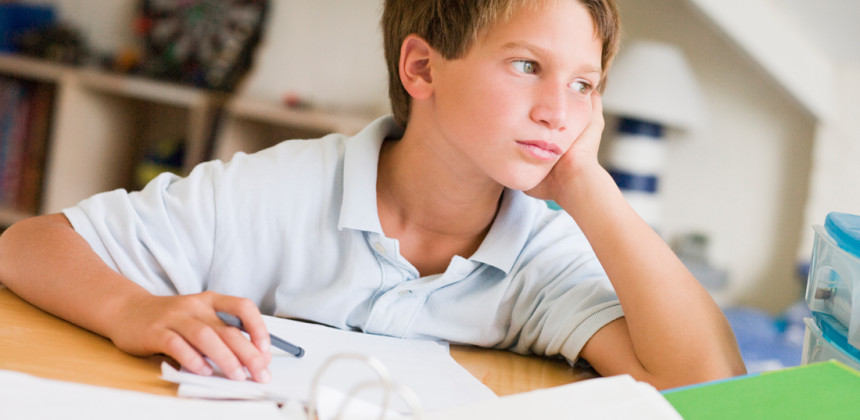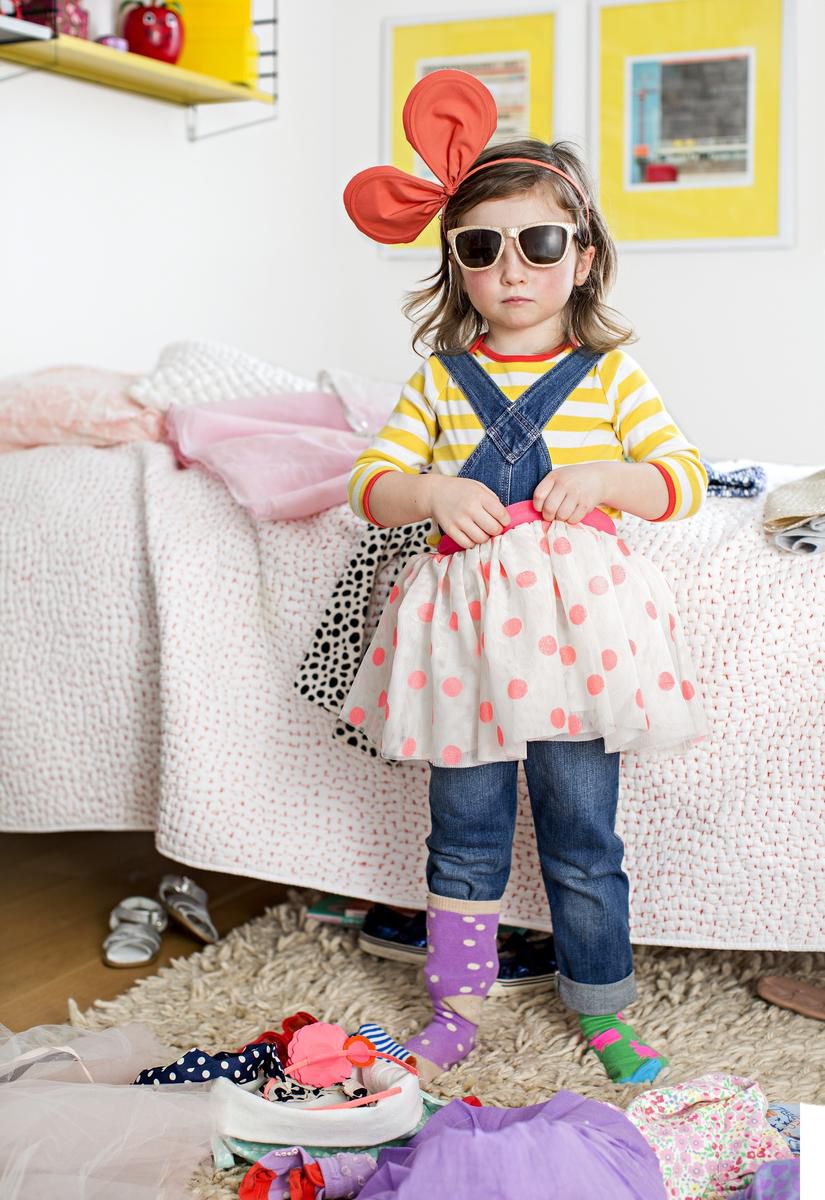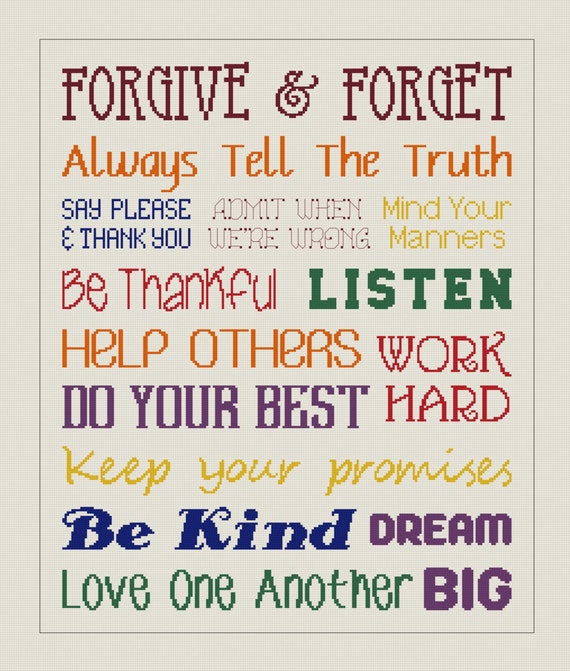Let's be honest. Children are easily distracted. This has never been more apparent than while battling with your child to do their school from home while video games are singing their siren's song in the next room. Many parents would just brush this off, saying it's a "fact of life" or that their child has "the average attention span" for a child of their age group. Doesn't that start to sound hollow after the 4th or 5th time? And why do we feel the need to justify our child's lack of attention? If we continue to normalize such a low standard of attention that "average attention span" will continue to decrease. So where are we going wrong?
I mean if we're honest, it isn't just the children who are easily distracted in today's world. Everywhere we look there are things pulling for our attention and our time. Take your cell phone for example: how often does it go off on the average day? And how long can you let it sit before you give into the distracting urge to check and see what the latest message is from? Many of us cannot wait long. The reason for this is the distraction has become habitual. We crave the break from routine. And the industry knows this and is constantly trying to hijack and divert our attention with push notifications, reminders, and apps meant to feed our instant gratification mindset. Now does this mean our devices are the problem? No, not in the slightest. They are a factor, but we are not entirely guiltless. The problem is we have all lost our ability to own our own attention. We pride ourselves on our multitasking skills, but in reality our split attention is frequently focused on the wrong thing. So here are some ways to check the distraction in your own life and bring the attention back to what really matters- raising the strongest and most prepared child you can.
Gradual Time Reminders
Any parent who has tried to pull their kids focus away from a video game or the television to begin their homework or get ready for bed has experienced this one. A child who is engaged in something they truly enjoy will be reluctant or even angry when they are suddenly expected to stop what they're doing. And we can understand that feeling if we put ourselves in their shoes. I mean the Monday blues were real pre-quarantine after a truly enjoyable weekend away from work. So give them little time reminders. Set 5 or 10 minute timers and gently remind them once or twice what is coming up next. Give them a chance to exit the immersive world they've been lost in and help them mentally prepare for the next big thing. You'll be amazed at the decrease in emotional outbursts and confrontation this can bring to your home.
Teach Sequencing
A lot of children, especially the ADD and ADHD ones have a hard time picturing what the finished product looks like. So they'll start a task with great intentions, but then they cannot see the end goal and their focus gets lost along the way. They have to learn how to break big tasks into smaller steps and then how to follow a sequence of steps through until completion. So how do we start to teach this skill? One way to teach sequencing is to use the "Get Ready - Do - Done" methodology (this helps children still mastering sequencing and also those struggling with anxiety, in addition to the ADD, and ADHD kids mentioned before). This method is great because it makes the planning visual. You are removing the mystery/confusion of a task by showing them what finished looks like. So if you want your child to do start their school work or their online martial arts training on their own you would pull out an old picture of them ready for martial arts class or doing their schoolwork at the table to give them that mental picture of what finished looks like. Depending on the child's age you might also need to point out elements needed to accomplish this goal (i.e. laptop, notebook, writing implements; or if training - electronic device, clear space, training equipment). Then you let them go. Afterwards you both compare what they managed to what the goal really was. This may take a few tries to become a habit, but by teaching them to plan then work, and then work the plan you are preparing them for success not only in school, but also the workplace, and beyond.
 No More Yelling
No More Yelling
Have you ever shouted across the room or the house to another member of your family? Do you get a half-hearted "yeah" or "uh-huh" in response and then later denials of ever having had that conversation? It happens all the time in our home. Listen Warrior parents. We get it. We know parenting is a delicate juggling act and sometimes it just seems easier to shout for someone's attention because we feel it saves time. This is a parenting pitfall, however, that sets all of us up for failure. When we yell across the room we don't truly have our child's attention. They respond out of habit because they've learned it's expected of them. They aren't truly listening to us and are still more focused on their activity at hand. Often our yelled instructions to "get ready for martial arts class/dinner/homework etc." won't even register. So let's all cultivate attention by building better habits of communication. If we can't be bothered to make sure we have our child's attention, we can't be surprised that we never had it in the first place. Instead of yelling across the room, go up to your child, get on their level, make eye contact, use a gentle hand on the shoulder. Be empathetic. Be clear. Teach them that good communication requires sharing your undivided attention for a few precious moments in time. Children are much more likely to listen when they feel seen, heard, and understood by you regularly.
Explain Instead of Order
No one enjoys being talked at or told what to do. And let's be honest, children are inquisitive. They are constantly wanting to learn and understand why something is just so. You can total drill sergeant if you want to. There is a time and a place for ordering your home about. And battles of wills and assertions of independence will happen somewhere along the way. Not every task has to be an uphill battle, however. When we get a child's attention and directing their understanding to why a task is important you are forced teaming with them. You are no longer matched against each other for dominance. Now you are on the same side, and the same page trying to accomplish a common goal. If it works in management it absolutely can work in your home. So take an extra moment to explain why the next task is important, it might just save you a headache in the long run.
Routines Are Your Friend
When all else fails routines are your friend. Routines help us build habitual attention. It gives a growing child a sense of security because they know what to expect next. And it is a great way to combat character hurdles like procrastination or laziness because if we're on autopilot sometimes it's just easier to get those undesirable tasks done. For example I am not a morning person. Never have been and never will be. I just do not wake up bright and perky. So in building a routine I can focus on one step at a time until I feel a little more human and am able to safely join society without snapping at anyone. I lethargically nurse a cup of coffee while listening to a podcast. Am I listening exceptionally close? No. Does it wake my brain up some and make me feel productive? Definitely. At a predetermined time my phone automatically starts playing a pumped up wake up mix of upbeat music. I take a shower and get ready for the day. Often I don't even notice all of this happening, but by the time I am done I feel like a complete human again. Is this a strength of mine, absolutely not. Have I cultivated a routine to keep myself on track, yes. So try it with your family. The order and routine that works for us can often help a struggling child.
Overall cultivating attention (especially when our normal routines are gone and there is so many distracting things at home) will be a journey for the whole family. We must learn to observe where our mind and emotions are and teach our children to do the same. We must recognize what led us to this distraction and then learn ways to combat our own inattention. Maybe that means you become a super planner and maybe that means you just need to build some routines. Bottom line is that there is immense power in being present and attending to the moment at hand. So teach your child to work hard and give one thing at a time their full attention. Because cultivating attention is a gift that keeps on giving.
#RaiseAWarrior
 Originally being present felt like a surprise gift. It felt good to slow down and just be in the moment with our family. But as summer gets into the swing of things, the fears and anxiety we've been facing over the past few months begin to melt away. And we are left yearning for those family adventures we look forward to every year. Because anticipation of something - even if it's just a friends get together or trip out of town - can often be as enjoyable as the real thing. However, this summer is different though. So if you're asking yourself if it's okay to plan trips right now while gas and flights are cheap and you just aren't sure yet. If you're considering family outings and adventures, but are hesitant. If all this uncertainty and inability to plan for the future has you feeling down and like this is the May that will never end then try this little activity out as a family.
Originally being present felt like a surprise gift. It felt good to slow down and just be in the moment with our family. But as summer gets into the swing of things, the fears and anxiety we've been facing over the past few months begin to melt away. And we are left yearning for those family adventures we look forward to every year. Because anticipation of something - even if it's just a friends get together or trip out of town - can often be as enjoyable as the real thing. However, this summer is different though. So if you're asking yourself if it's okay to plan trips right now while gas and flights are cheap and you just aren't sure yet. If you're considering family outings and adventures, but are hesitant. If all this uncertainty and inability to plan for the future has you feeling down and like this is the May that will never end then try this little activity out as a family.



















